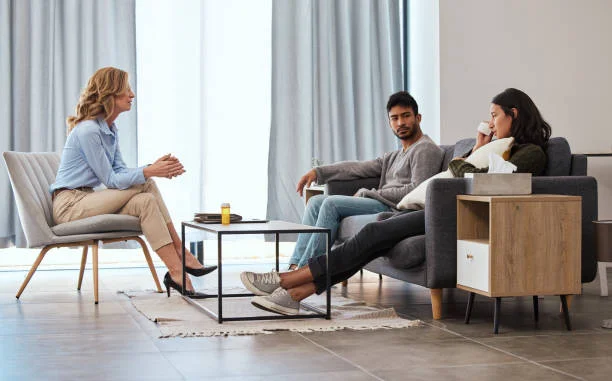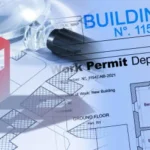Every relationship goes through challenges. From communication breakdowns and unmet expectations to financial disagreements or emotional distance — these issues can strain even the strongest marriages. For many couples, relationship counselling provides the space, structure, and guidance needed to rebuild trust, improve understanding, and reconnect emotionally.
However, before seeking counselling, it’s helpful for couples to take a step back and reflect on their situation. Asking the right questions beforehand not only prepares both partners mentally and emotionally but also ensures they get the most out of therapy.
Here are five important questions couples should ask themselves before visiting a relationship counsellor — and how counselling can help resolve marital conflicts productively.
1. What Are We Hoping to Achieve Through Counselling?
The first step toward productive couple counselling near me is understanding your goals. Are you looking to rebuild trust after a betrayal? Improve communication? Rekindle emotional intimacy? Or decide whether to continue the relationship?
When both partners are clear about what they want, therapy sessions become more focused and effective. Even if your goals differ, discussing them before meeting a counsellor can highlight underlying issues that need attention.
A relationship counsellor helps refine these goals and turn them into actionable steps. For example, they might guide you in setting emotional boundaries, rebuilding respect, or identifying patterns that hinder intimacy. Clarity helps both the couple and the therapist navigate the process with purpose.
2. Are We Both Willing to Take Responsibility for Our Part in the Conflict?
It’s common for couples to enter counselling hoping the therapist will “fix” their partner. But successful therapy requires mutual accountability. Both individuals must be open to self-reflection and willing to examine their own behaviors, attitudes, and communication styles.
Before counselling, ask yourselves: Am I ready to admit when I’m wrong? Am I open to changing my approach?
A professional counsellor doesn’t assign blame. Instead, they create a neutral environment where each partner can express themselves honestly and take responsibility for their role in the relationship’s challenges. This shared ownership becomes the foundation for long-term healing and growth.
Your next discovery is here—check out the related post waiting for you.
3. Are We Ready to Be Honest — Even When It’s Uncomfortable?
Transparency is the cornerstone of effective relationship counselling. To make progress, both partners must be willing to discuss painful emotions, past mistakes, or sensitive issues that may have been avoided.
Ask yourselves whether you’re ready to:
- Be vulnerable and express your true feelings
- Listen to your partner’s perspective without judgment
- Accept feedback and constructive criticism
A relationship counsellor provides a safe, non-judgmental space where honesty is encouraged and supported. They help couples communicate difficult truths calmly and productively — transforming conflict into understanding.
Even when emotions run high, the counsellor ensures that conversations stay respectful and goal-oriented, preventing them from turning into arguments.
4. Are We Both Committed to the Process?
Relationship counselling is not a quick fix. It’s a process that requires patience, consistency, and active participation from both partners.
Before scheduling sessions, couples should ask themselves if they’re truly committed to showing up, engaging, and following through on the counsellor’s recommendations. Are both partners willing to attend sessions regularly and apply what they learn at home?
A counsellor can guide, teach, and mediate, but lasting change depends on the couple’s effort. When both individuals are equally invested, therapy becomes a transformative experience rather than just a series of conversations.
5. What Do We Value Most About Our Relationship?
When tension builds, couples often focus only on what’s wrong — forgetting what drew them together in the first place. Reflecting on the strengths and positive memories of your relationship can reignite motivation to make it work.
Before counselling, discuss what you appreciate about each other. What values do you share? What moments make you proud as a couple?
Relationship counsellors often start sessions by identifying these strengths. They use them as building blocks for resolving deeper issues. By remembering why the relationship matters, couples can approach conflicts with empathy and a renewed sense of partnership.
How a Relationship Counsellor Helps Resolve Marital Conflicts Productively
A relationship counsellor plays a vital role in helping couples navigate emotional complexity in a structured, balanced way. They don’t take sides or dictate outcomes — instead, they facilitate constructive dialogue that fosters understanding and healing.
Here’s how they help:
- Identify Root Causes: Counsellors look beyond surface-level arguments to uncover deeper emotional triggers, such as unmet needs or past traumas.
- Teach Effective Communication: They introduce tools like active listening, “I” statements, and empathy-building exercises to replace criticism and defensiveness.
- Rebuild Emotional Intimacy: Through guided discussions and activities, counsellors help partners reconnect emotionally, restore trust, and rekindle affection.
- Set Healthy Boundaries: They help couples define personal limits and respect each other’s individuality while maintaining closeness.
- Promote Lasting Change: Counsellors equip couples with long-term strategies to handle future challenges — ensuring the relationship continues to grow even after therapy ends.
By working with a skilled counsellor, couples can transform recurring conflicts into opportunities for growth, understanding, and renewed connection.
Final Thoughts
Seeking relationship counselling isn’t a sign of failure — it’s a sign of commitment. Asking these five questions before starting therapy helps couples enter the process with clarity, honesty, and shared intention.
A relationship counsellor provides the guidance, support, and tools needed to navigate conflict, improve communication, and strengthen emotional bonds. When both partners are willing to learn and grow together, counselling North Vancouver can turn a struggling relationship into a stronger, more fulfilling partnership built on trust, respect, and love.
Take the next step—explore more posts for insights and inspiration at Management Works Media.






